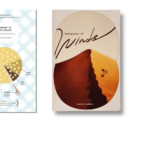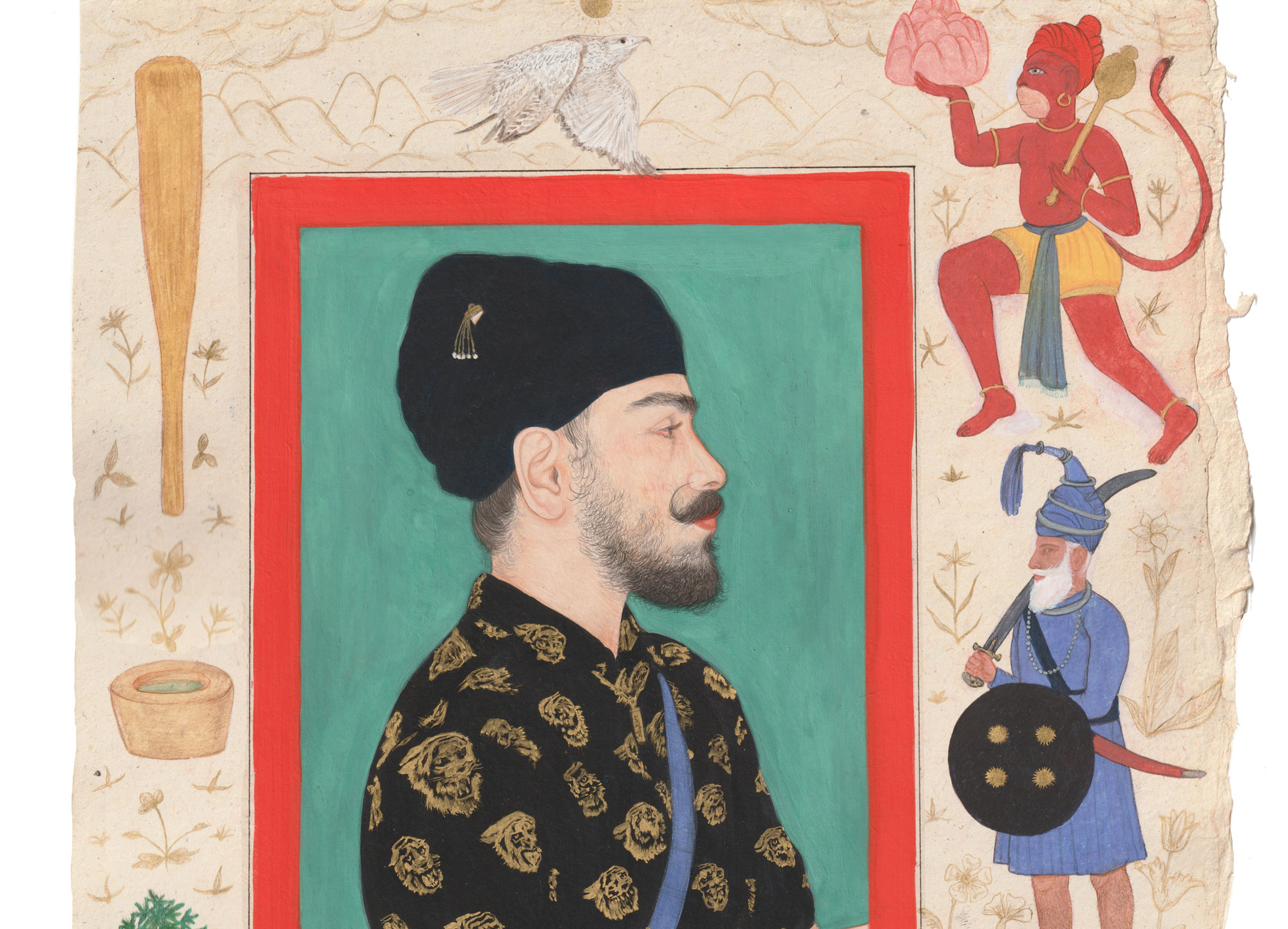Yatra
2019 - Textile (Textile)
100 x 200 cm
Sarah Navqi
A “mata ni pachedi” is a piece of painted textile that depicts narrative images of goddesses. Traditionally, the images would be painted onto a piece of cloth found in the temple. Also known as the “kalamkari” (a hand-painted or block-printed cotton textile), “mata ni pachedi” literally translates to “behind the mother goddess”. The practice originated in the nomadic Vaghari community of Gujarat, who, upon being barred from entering Hindu temples, made their own mobile shrines with depictions of the Mother Goddess on cloth. Today, this sacred art form is universally revered and used in decorating temples and shrines with narrative illustrations of religious stories. Conceived by artist Sarah Naqvi with master craftsman Chandrakanth Chitara, Yatra depicts the Ram Leela procession, which is a staged re-enactment of the ancient Hindu epic Ramayana , through the Muslim neighborhoods of Ahmedabad, India. The procession has long been used by Hindu nationalist groups to stir communal tensions between Hindus and Muslims in a city infamous for its violent religious riots. The work examines this moment of tension, and the layered histories it embodies.
Sarah Naqvi works with art-focused activism and material realities. Her practice places emphasis on the importance of being comfortable in one’s own body. She is known for her unconventional use of materials, mediums, and techniques like fabric manipulation, dyeing, and appliqué on unusual materials such as sanitary napkins, bra cups, and tampons.From watercolor paintings to cloth and woolen sculptures of human body parts, Naqvi’s art is a celebration of body positivity and self-acceptance.
Colors:
Related works sharing similar palette
» see more

© » ARTS EQUATOR
Reading in isolation: ‘Others’ is Not a Race and Interpreter of Winds | ArtsEquator Thinking and Talking about Arts and Culture in Southeast Asia Articles April 9, 2020 By Kathy Rowland (913 words, 4-minute read) Last November, when there was nary a thought for social distancing, and Corona conjured up visions of lime wedges and grimy bars, I reread Rex Shelley’s 1991 debut novel, The Shrimp People ...

© » HYPERALLERGIC
The Memes That Carried Us Through 2023 Skip to content Us explaining to our moms what a 2023 meme looks like (edit Valentina Di Liscia/Rhea Nayyar/ Hyperallergic ) As we close the books on 2023, with its political absurdities, unfathomable atrocities, and aura of mounting pessimism, now is as good a time as ever to page through the months and remember what brought us together for moments of laughter...
Related works found in the same semantic group
» see more

© » HYPERALLERGIC
Met Museum to Return 16 Looted Khmer Artifacts Skip to content Unknown artist, "Head of Buddha" (7th century), sandstone, 24 x 13 x 12 3/4 inches (all photos courtesy the Metropolitan Museum of Art) An ancient larger-than-life sandstone Buddha head, a bronze sculpture of a seated Bodhisattva Avalokiteshvara, and a 10th-century goddess statuette from a remote temple complex are among 16 looted Khmer works currently in the process of repatriation back to Cambodia and Thailand, according to announcements by the Metropolitan Museum of Art and the US Attorney’s Office for the Southern District of New York (SDNY) released today, December 15...

© » ARTS EQUATOR
10 Things You Didn’t Know About Kavadi Attam | ArtsEquator Thinking and Talking about Arts and Culture in Southeast Asia ArtsEquator Radar Joy Ho / Jawn October 24, 2020 10 Things is a series of three short animated videos, each focusing on a lesser known traditional artform – Dikir Barat, Kavadi Attam and Nanyin...

© » SOMETHING CURATED
Jatinder Singh Durhailay Reimagines Indian Miniature Painting for Modern Times - Something Curated Share this: Facebook Twitter Tumblr Features Interviews Profiles Guides Jobs Interviews - 8 Dec 2023 - Share British artist Jatinder Singh Durhailay ’s mesmerising works re-envision Indian miniature painting, in particular drawing reference from paintings produced during the Mughal Empire...

© » KADIST
Citra Sasmita
2019The work Timur Merah Project 2, the harbour of restless spirit is stretched out on a full cow’s hide, replicates the Kamasan Balinese painterly language that Citra Sasmita has developed in her recent works...


